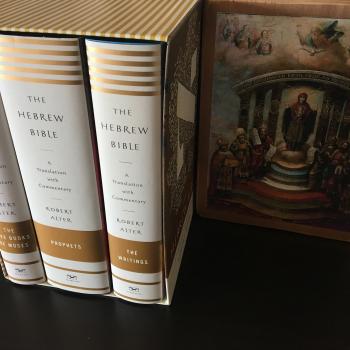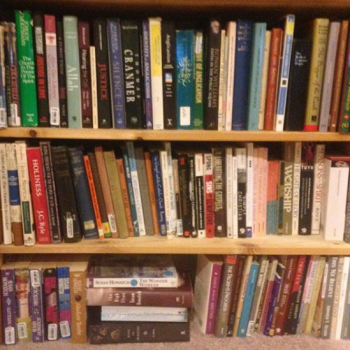This is the fourth installment of a series on whether Asian Americans and Asian Canadians should be in solidarity with pro-democratic movements in Hong Kong. There are three previous posts available here, here, and here, and I strongly recommend reading those before you read this one on community organizing and the question of nostalgia for the United Kingdom’s colonial regime in Hong Kong.
Well, well, well…they say that if you snooze, you lose.
The latest news on Hong Kong is that pro-democratic Hong Kong leaders Martin Lee and Anson Chan have managed to get the United Kingdom’s deputy prime minister Nick Clegg on the record saying that the UK will ‘mobilise the international community and pursue every legal and other avenue available’ if the PRC doesn’t honour the ‘one country, two systems’ policy. What’s more, Chan managed to get a word in to Parliament that despite the increasing violation of Basic Law’s Article 22 through the interference of Beijing’s Liaison Office into Hong Kong’s affairs, the UK hasn’t said much about Hong Kong, even though the UK is a joint signatory to the 1984 Joint Agreement that set in place the ‘one country, two systems’ policy that in turn became the framework for Basic Law.
Appealing to the former colonizers, what Chan and Lee are trying to do is to get the UK to do is to honour agreements that they set into place. While this definitely smacks of the kind of colonial nostalgia that’s anathema to Asian American/Canadian solidarities against colonial occupation – most recently demonstrated in the 2013 Association of Asian American Studies’s adoption of the Boycott, Divestment, and Sanctions (BDS) movement’s rebuke against the Israeli occupation of Palestinian territory (which is particularly poignant at this moment with regards to the strikes in Gaza) – what I’ll hope to show in this post is that there is something strangely postcolonial about Hong Kong people appealing to the UK to honour its own policies. That’s because it’s about the colonized people having agency.
This is because a major strand of democratic community organizing in Hong Kong since the 1980s began precisely by forcing the UK’s colonial government to honour its legal commitments to Hong Kong people. That, in turn, is because the UK colonial government had a history of being in shady collusion with big business; it was definitely not the democratizing force in Hong Kong that it was cracked up to be.
And for that, we have to turn to the record of community organizing in Chai Wan, the district on the eastern side of Hong Kong Island that served as an industrial site during Hong Kong’s economic boom years in the 1970s and 1980s. This record also might help explain why Occupy Central seems to be so heavily dominated by Christian clergy, though its aims seem so secular.
In 1982, a group of Protestant clergy affiliated with the Hong Kong Christian Council (HKCC) opposed a bus fare hike. This had a lot to do with Chai Wan because – as those living in Hong Kong at the time will remember – this industrial area of the island was cut off from the rest of the island and was accessible only from Shaukeiwan. As clergy such as Methodist pastor Rev. Lo Lung Kwong and Baptist pastor Rev. Chu Yiuming observed, a hike in the bus fare would have meant overly burdened already-poor people who needed to take public transportation. Bringing their concerns to the HKCC, a cross-denominational group of Protestant clergy and academic theologians from across the theological spectrum protested the bus fare hike on behalf of the poor, especially workers in Chai Wan.
As these clergy began to probe other issues of public interest in Hong Kong, what they found was that the British colonial government was often in collusion with big businesses to turn public utilities into profit-making machines. Following the bus fare protest, Lo, for example, learned that there would soon be a hike in utility bills, again overly burdening the poor with public utilities fees while the rich laugh all the way to the bank. There was another ecumenical protest. On the same token, it came to Chu’s attention that while the government had made plans for an Eastern Hospital for the Chai Wan workers, the project kept on getting stalled, even though it was over a decade overdue. Again, the clergy demanded that the government stop its collusion with wealthy businesses and start caring for the poor – by building them a public hospital that was accessible, especially if factory workers got injured on the job and couldn’t afford to be transported across the island to treat their injuries.
What you see here, then, is a very interesting pattern, not unlike Asian American and Asian Canadian community organizing. For some reason, promises made to those who are not as economically privileged have a way of mysteriously being forgotten. Collusions with wealthy businesses tend to have a way of being elevated in priority. The UK colonial government was no different – speaking on behalf of the poor, these Christian clergy who went on to become some of the major democratic leaders, especially after the 1989 Tiananmen student movement, argued that the British colonizers in fact had an obligation to the people they had colonized. It’s the same with, say, Chinatown organizing that was happening in the United States: in one example in the 1970s, San Francisco’s PresbyterianChurch in Chinatown organized hundreds of seniors to sit in on city hall until it favoured them over wealthy Nob Hill residents to build affordable seniors’ housing in Chinatown. Sure, they felt racialized by the municipal government, which also at the time was trying to redesign San Francisco into an investor-friendly city, which meant evicting the mostly-Filipino senior citizens living in the International Hotel on Kearney Street and bulldozing the place to wit. But the answer of Asian American community organizing was that the municipal government has an obligation even to the racialized, just as the message of the Hong Kong clergy to the British colonial government is that it has an obligation to the colonized, especially if policy frameworks have already been set in place for the government to publicly serve the people.
It’s arguable that an interesting pro-democratic politic doctrine emerged from this Chai Wan activism: whatever government happens to be colonizing Hong Kong at the time, it has the obligation to provide public services for the people, who in turn have a right to political agency in order to demand that those obligations be met by the government. That’s what has to be seen in this recent trip taken by Anson Chan and Martin Lee. Although the colonial nostalgia may strain Asian American and Asian Canadian sensibilities, their actions can also be understood within the doctrinal framework that the colonized have political agency to publicly demand their legal rights. That these rights must be demandedsuggests that in fact, there is actually nothing for which to be nostalgic about British colonial rule in Hong Kong. After all, the tradition by which this doctrine was developed was formed as a protest to British collusion with the wealthy against the poor. If there’s nostalgia for anything, it’s for the unity of clergy to protest for these legal rights.
It’s to that clergy front and the theological debates in Hong Kong about democracy to which we will probably need to move next.
Much of what I’ve written here is publicly accessible in my PhD dissertation. I’ve only offered an overview here, and I did not write here about the significance of the 1977-8 Golden Jubilee Incident for the origins of pro-democratic political protest against colonial government collusion. The dissertation, especially section 4.5.3 offers many more details. An excellent social scientific account is also offered in Tinming Ko’s The Sacred Citizens and the Secular City.
The current Hong Kong historiography also suggests that British colonial rule is nothing for which to be nostalgic because it’s probably better conceived of as a series of either sloppy policies or strategic considerations, both of which self-servingly served to reinforce British sovereignty and weren’t exactly models of best practice. When Hong Kong people experienced good government, it was often because the Hong Kong Chinese demanded it of their colonizers. Some further reading includes Christopher Munn’s Anglo-China on the 1840s-1960s, W.K. Chan’s The Making of Hong Kong Society on the 1890s to the 1920s, Manuel Castells et al’s Shek Kip Mei Syndrome on the 1950s to the 1980s, and Agnes Ku and Ngai Pun’s Remaking Citizenship in Hong Kong on the more contemporary period. For overviews, one might start with David Faure’s Colonialism and the Hong Kong Mentality, Law Wing Sang’s Collaborative Colonial Power and James Carroll’s Edge of Empires and A Concise History of Hong Kong.











